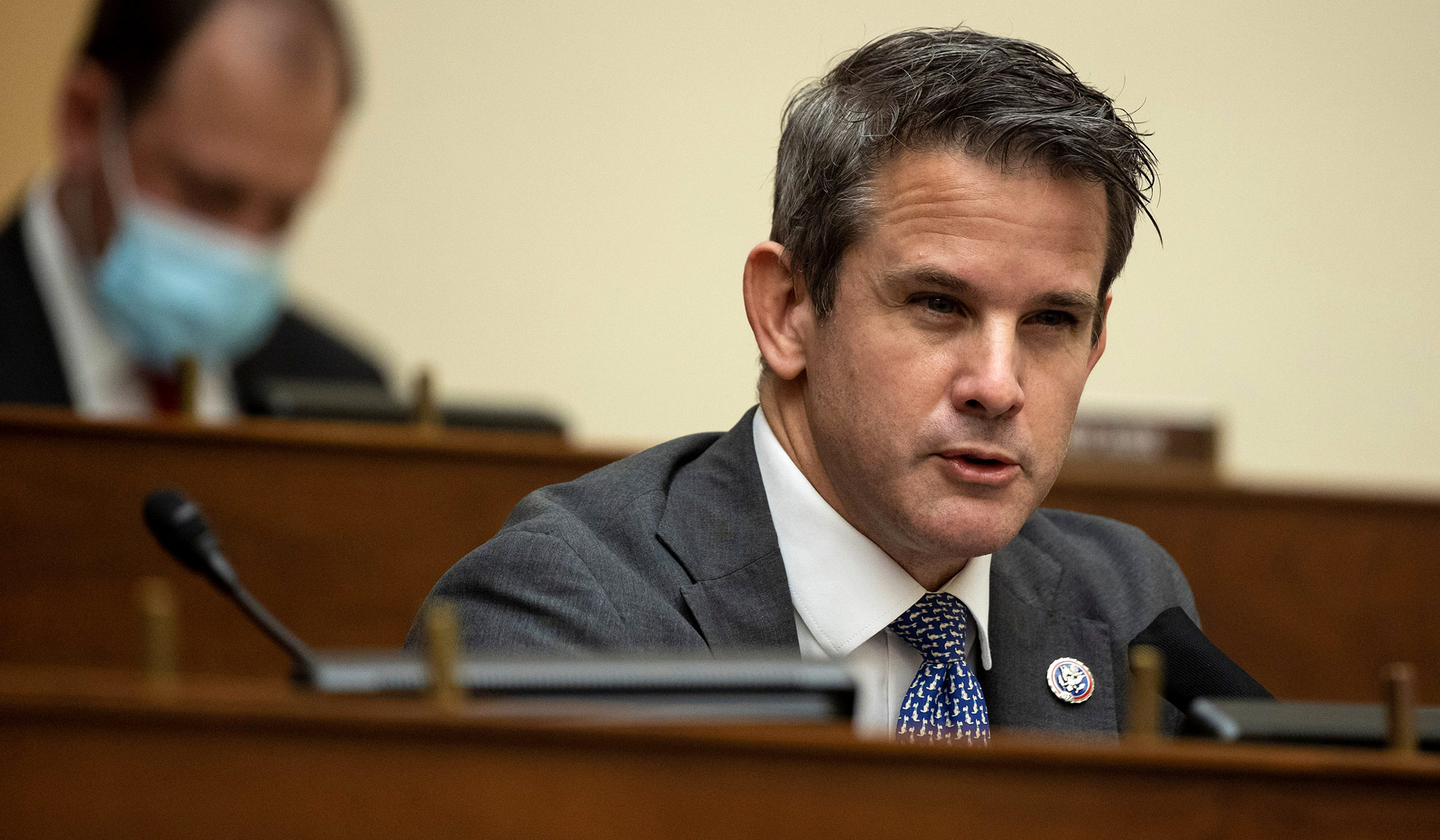Critics of former President Donald Trump – Representatives Adam Kinzinger and Liz Cheney, along with Maryland Governor Larry Hogan – could all launch presidential campaigns in 2024.
The news comes via a report from the Associated Press.
The report notes that all three have some irons in the fire regarding 2024:
- Hogan is “planning trips to Iowa and New Hampshire.”
- Kinzinger is “considering a rough timeline for a potential presidential announcement.”
- Associates of Cheney are “openly talking up her White House prospects.”
The AP points out that this is the first time ‘Never Trump’ operatives have plotted a ‘shadow primary’ knowing it is very likely Trump himself will run in 2024.
With the 2024 contest almost in view, the question is no longer whether one of Trump’s prominent Republican critics will run, but how many will mount a campaign and how soon they will announce.https://t.co/FsO1MWYa1Y
— Jill Colvin (@colvinj) March 14, 2022
RELATED: Hawley Mocks Liz Cheney For Possible Presidential Run: She Has ‘No Support In Her Own Caucus’
Cheney-Kinzinger 2024
The goal for Hogan, Cheney, and Kinzinger in 2024 supposedly isn’t about winning the nomination, as each is clearly destined to fail. As per usual, they view themselves as having a more noble cause – stopping Donald Trump.
“Their goal would not necessarily be to win the presidency,” the outlet writes. “Above all, they want to hinder Trump’s return to the White House.”
In that, 2024 might not end up being very different than 2016.
Those close to Liz Cheney, Larry Hogan and Adam Kinzinger expect one of them, if not more, to launch a presidential bid after the 2022 midterms. https://t.co/5Pm7BSUvc7
— NBC4 Washington (@nbcwashington) March 14, 2022
“It’s there as an option, but it’s not necessarily because this is all some big plan so I can be in the White House,” Kinzinger admitted.
“It’s looking and saying, ‘Is there going to be a voice out there that can represent from that megaphone the importance of defending this country and democracy and what America is about?’” he added.
Kinzinger seems to think he’s that man. Of course, he’s the same drama queen who said Republicans who stand up to Trump are the same as the heroes of Flight 93 who fought back against terrorists on 9/11.
The report indicates that the ‘anti-Trumpers’ all believe there are “a significant number of less vocal Republican voters” who “are eager to move past Trump.”
Kinzinger: My “biggest regret” was voting against first Trump impeachment https://t.co/M9wXo5emrj pic.twitter.com/T3GSJaCNzQ
— The Hill (@thehill) March 12, 2022
RELATED: Goodbye: Anti-Trump Rep. Adam Kinzinger Won’t Seek Reelection
It’s in the Works
The report that Cheney, Hogan, and Kinzinger are planning a run at the Republican nomination for president in 2024 has been hinted at in the past.
A Politico column in August notes that those close to Kinzinger believe he may run for statewide office or “he could even mount a 2024 presidential bid.”
The Political Insider reported back in April that Cheney refused to rule out a future run for President of the United States when asked.
Cheney says GOP lawmaker who called Trump a “would-be tyrant” is right https://t.co/tTi4qLOdbD pic.twitter.com/wZW9nNwZbL
— The Hill (@thehill) March 14, 2022
“I’m not ruling anything in or out — ever is a long time,” Cheney was quoted as saying.
The comments prompted Senator Josh Hawley to mock the anti-Trump Representative, saying she doesn’t speak for Republicans and has “no support in her own caucus.”
Asked Josh Hawley about Cheney’s criticism of him, and he said she is “really out of step with GOP voters and members.”
“This is somebody who has no support in her own caucus, who has hung her own members out to dry over and over…I think she’s on an island.”
— Manu Raju (@mkraju) April 27, 2021
The pair – Kinzinger and Cheney – are nearly indistinguishable after abandoning any semblance of Republican values and shifting their focus to an exclusively anti-Trump campaign.
Hogan, according to the AP, is busy “working to help Trump’s loudest Republican critics in other states” as he plans trips to Iowa and New Hampshire – the first two states on the traditional presidential primary calendar.
Perhaps that says something about the relative value of a nominal Republican who is able to win a deep blue state, like Hogan in Maryland or Mitt Romney in Massachusetts.
Kinzinger also noted he’d be willing to try a presidential run as an Independent in order to stop Trump but his “hope would be to be able to find the salvation of the GOP.”
The post Report: Never-Trumpers Kinzinger, Hogan, And Cheney Could All Run Against Trump In 2024 appeared first on The Political Insider.
